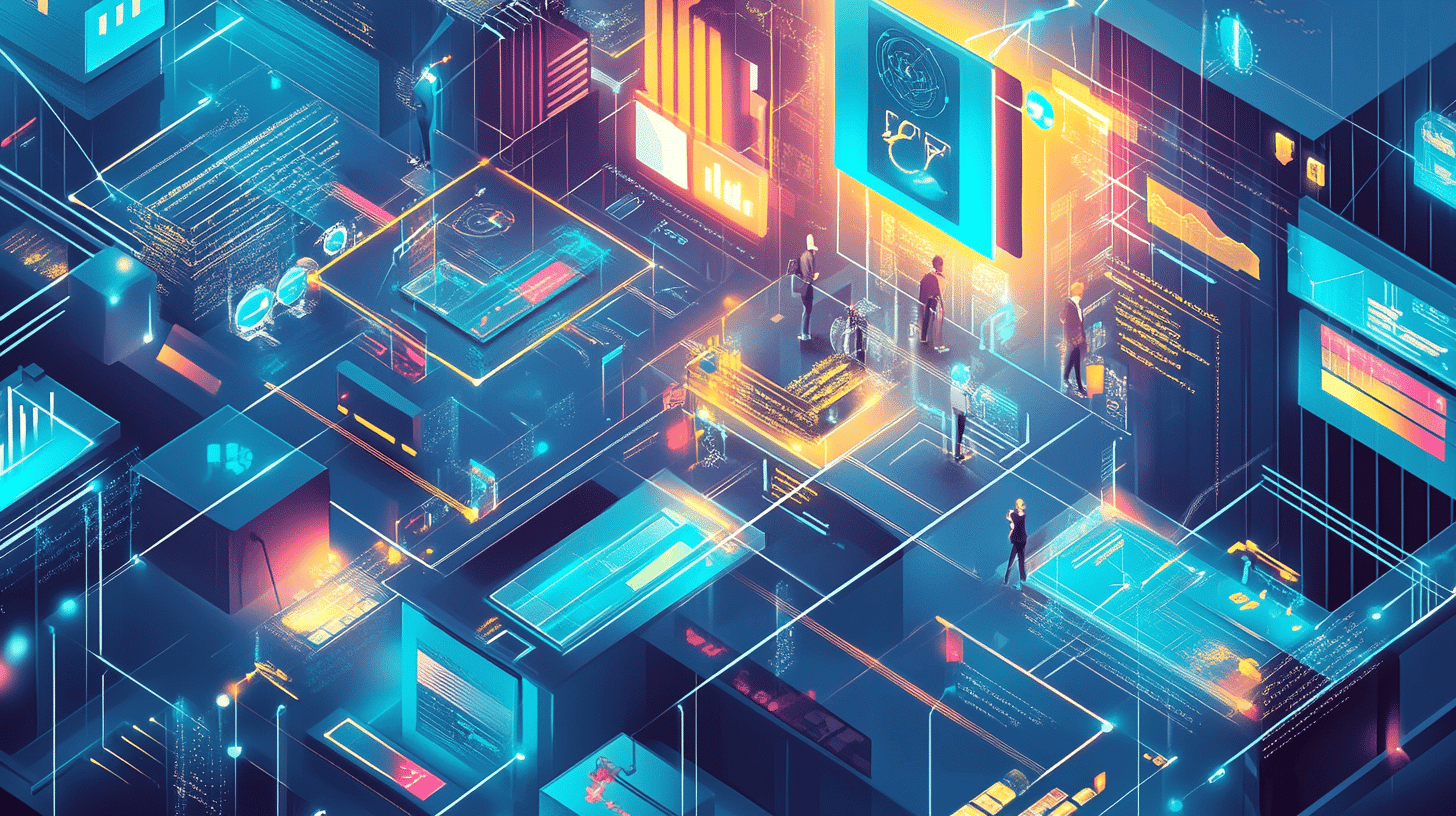Technology is advancing at a pace never seen before, shaping every aspect of our lives and reinventing entire industries. This post explores the latest technology trends and innovations that are, and will continue to, impact the future. From artificial intelligence to quantum computing, we’ll look at the most exciting developments and what they mean for our everyday lives.
1. Artificial Intelligence (AI) and Machine Learning
Artificial intelligence (AI) is no longer a futuristic concept, but an integral reality in our lives, whether in personal assistants like Siri and Alexa or in product recommendations on e-commerce platforms. Machine learning, a sub-field of AI, allows systems to automatically improve themselves through experience. The latest trend in this field is the use of generative AI, which involves algorithms capable of creating new content. Whether generating text, music or works of art, generative AI is challenging our notion of creativity.
2. Internet of Things (IoT)
The Internet of Things refers to the interconnection of smart devices via the internet, enabling easy data exchange. From home appliances that can be controlled from a smartphone to energy management systems in large industries, IoT is making our lives more comfortable and efficient. Increasingly, we are seeing smart homes and cities where all infrastructure, including lighting, security and HVAC, works in harmony.
3. Quantum Computing
Although still in its early stages, quantum computing promises to revolutionize the way we process information. Unlike traditional computers, which use bits, quantum computing uses qubits. This allows for immensely greater processing capacity, which can solve complex problems in fractions of a second. Institutions such as Google and IBM are investing heavily in this technology, predicting that it will forever change security, scientific research, and even medicine.
4. Augmented Reality (AR) and Virtual Reality (VR)
AR and VR offer immersive experiences that transform the way we interact with our surroundings. While virtual reality creates entirely new worlds for exploration, augmented reality overlays digital elements onto the real world, enriching everyday experiences. Gaming, tourism, education and professional training are areas where these technologies have proven particularly impactful, allowing people to explore environments in a highly interactive way.
5. Blockchain and Cryptocurrencies
Blockchain is more than just the technology behind cryptocurrencies; it is a secure, decentralized way to record transactions and manage data. In industries such as finance, healthcare, and logistics, blockchain is ushering in a new era of transparency and security. A clear example is the use of smart contracts that automatically execute actions based on predetermined conditions, eliminating intermediaries and streamlining processes.
6. Sustainability in Technology
Our planet is facing unprecedented environmental challenges, and technology is part of the solution and part of the problem. Tech companies are working hard to develop more sustainable solutions, whether through creating hardware that consumes less energy or implementing circular economy policies. The production of renewable energy, electricity and the use of technologies that reduce carbon footprints are examples of the path that technology is taking towards a sustainable future.
7. 5G and Advanced Connectivity
The introduction of 5G is already pushing technology to unprecedented levels. This advancement in connectivity not only promises faster internet speeds, but also the ability to connect a greater number of devices simultaneously. This makes real-time communication a reality, benefiting both individuals and businesses. 5G is expected to further drive innovation in areas such as IoT, augmented reality, and robotics.
8. Cybersecurity and Data Protection
With cyber threats on the rise, cybersecurity is a growing concern. Developing more robust data protection systems is crucial, especially with more individuals and organizations storing sensitive information online. The focus is on implementing technologies such as artificial intelligence to detect and respond to threats in real time, providing proactive protection.
9. Robotics and Automation
Robotics and automation continue to grow across industries, increasing efficiency and reducing the risk of human error. From robots working in factories to virtual assistants in customer service, automation is transforming the workforce. However, this trend is bringing to the forefront discussions about the future of employment and the need to reskill the workforce.
Conclusion
The technologies mentioned above are not just innovations; they represent a transition to a new paradigm in all spheres of human life. As these innovations continue to evolve, it will be crucial for the public and businesses to adapt to these changes, seizing the opportunities that arise, while also considering the associated risks.
Here at Daouq, we’re always keeping an eye on the latest technology trends and how they’re impacting our future. We hope you found this post inspiring to explore more about how these innovations can impact your life and decisions. Think about how you can integrate these trends into your personal or professional life, and stay tuned for more news we’re bringing you. Share your thoughts in the comments and keep following Daouq for more interesting content on technology and innovation!



